Erric Solomon's Blog
December 4, 2019
How to Get Along With Family and Friends During the Holidays (even when your obnoxious uncle wants to discuss politics)

One burning issue that kept coming up during my recent Radically Happy European tour concerned the coming holiday season. In the past, people looked forward to getting together with family and friends, eating and merry making their way through the festivities. But in today’s hyper-polarized world, there seems to be a lot of questions about how to negotiate table when your Uncle Bob is emphatically espousing his latest conspiracy theory.
Last year I wrote about how to prepare your mind and heart for the holidays, you can find it here. But what about in the moment that it all goes down? Sometimes in the heat of the moment it seems impossible to know how to respond when Auntie Anne sounds like they are saying something really intolerant and bigoted.
Even the most tricky, difficult and potentially divisive conversations are an opportunity to cultivate interconnected happiness. When we can do that we won’t get upset, and probably no one else will either. Here are three things we can do.
1. Be Like a Lion, Instead of a Dog
2. See Others as another you
3. Go to the toilet

1. Be like a Lion, instead of a dog
When you throw stones at a dog, it chases the stone. This is how we are with our thoughts and emotions. We chase every thought and emotion and play with, think about it, get into it. On the other hand, if you throw stones at a lion, he doesn’t care about the stones at all, he turns to look at where the stones come from.
We spend our whole life preoccupied with our stones—our thoughts and emotions. We never even look at the source of the thoughts and emotions, the mind itself, the awareness that knows the thoughts and emotions. So learning how to first not habitually chase our stones, and then to learn to look at the stone thrower.
So, try this Creating Space exercise—again and again. Become so familiar with feeling spacious that you don’t feel like you have to react when cousin Narcissistic Ned can’t stop bragging about what a stable genius he is. When you feel spacious, you will be far less likely to chase your negative thoughts and emotions like a dog chases stones. Instead be like a lion and watch the stone thrower, notice how your mind is—the mind is where thoughts and emotions arise from.

2. See Others as Another You
What is the key to being able to understand and meet the needs of others? It is realizing that we are all pretty much the same, just different permutations of human existence, each interacting with different circumstances. But still everyone wants to be happy and avoid suffering. The more you can identify with the basic commonality shared by all the myriad kinds of human existence, the easier it is to cultivate warm relations—the key to not reacting in the midst of holiday diners who say stuff that pushes your buttons. In order to do this it helps to consider how in many ways other people are just another you.
From Radically Happy: A User’s Guide to the Mind
Exchanging Yourself for Others
Think of someone you know who is suffering greatly. In the beginning, it’s probably easier if it is someone you are fond of, but it could be someone you heard about in the news whose situation really moved you.
Begin by creating space. Now imagine as much as possible how it would be if that suffering were yours. How would it feel to be going through that same misery? Consider how you would want people, including friends and family, to treat you. What would you most need from them?
Make this exercise as vivid and real as possible. Really imagine how it feels. How would you want to be helped and in what particular ways by those around you?
Then after a time, return to creating space or focusing on the breath.
Make the aspiration for everyone to be happy, to have the causes of happiness, and to be free from suffering and its causes.
When you consider the equality of all and mentally exchange yourself for others again and again, it becomes easier and easier to consider others as if they were another you.
Last month after leading a Radically Happy workshop, I attended a dinner hosted by the local group that was sponsoring my talks. At one end of the table, there was a heated discussion in German. Suddenly they switched to English, obviously they were looking for my input. They were arguing about the effects of immigration. The woman across the table from me started to tell me about how bad an effect immigration has been in the German city she just visited.
Rather than react, launching into my view, I showed my interest in what she was saying by asking a few gentle, probing questions: “What has changed in the city since the immigrants have started to come?”. She talked about feeling unsafe. I asked her what made her feel unsafe. She responded that there were so many men milling around the streets of the neighborhood, and the neighborhood used to be so quiet. I sympathized with her, “It must be difficult to adjust to so many changes in such a short amount of time.” Her body language relaxed. And she asked me about what I thought.
I wasn’t sure she liked my answer to her question. I said that as a consequence of my Buddhist practice, I felt an ethical responsibility to take refugees in from war torn nations. But at my talk two afternoons later she came up to me smiling and introduced my to the tall gentleman she was with, “I told my husband all about you and he came with me to your talk tonight!”. Although she was aware I had a different view of the migrants coming to Europe, she still came to my talk. I can’t help but think it was because I actually showed interest in her view, and waited until she asked me to give mine.
The main point, during the holidays, is to stick to the things you have in common, instead of looking for the things that make us different. In families and with old friends, there are certainly a few things everyone has in common. When you can put yourself in the other person’s shoes, it makes it easier to find common ground and respect for differences.

3. Go to the toilet
Even though you’ve tried everything, holiday events can still get out of hand—especially since alcohol is often involved. It’s important to keep checking in with yourself, how do you feel? How is your body responding to the situation? Is your chest getting tight? Is your heart rate going up?
If you notice you are starting to feel uncomfortable, try changing the conversation, bring out a new dish from the kitchen or play some music. If that doesn’t work, remember its going to be more fun for everyone (including you) if you preserve your relationships, rather than win arguments. You need an exit strategy. So get up and go to the toilet.
In the toilet, I promise you that no one will bother you. Everyone will think they know what your doing. And it’s ok to do that. But in addition, create space, feel your breath, and remember everyone is just another you.
Smile, enjoy your mind, eat something and don’t worry, it’s not going to last forever.
Happy Holidays!
April 23, 2019
The Magical Moment of Distraction
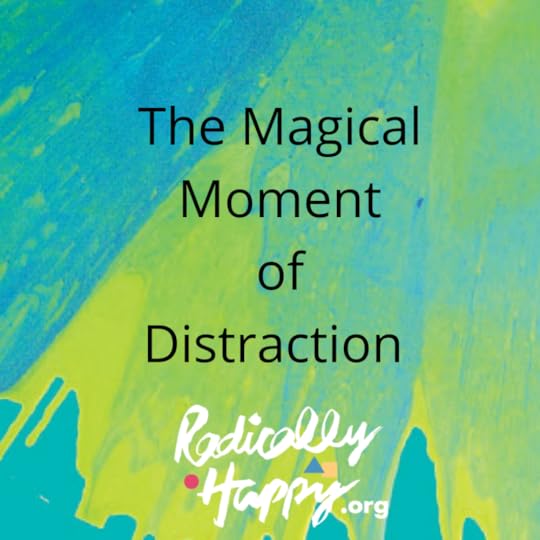
Meditation is supposed to be a practice of non-distraction. So what is so magical about the moment you realize you have become distracted?
In our book, we explain that meditation has three essential aspects: Mindfulness, Awareness and Relaxed Spaciousness.
Mindfulness
Mindfulness is the part of meditation practice that everyone talks about—we remain mindful of our meditation object. The most common practice is to use the breath as an “object” to be mindful of. We do this by placing our attention on our breath and we remain mindful of our inhalation and exhalation.
My teacher, Tulku Urgyen Rinpoche used to explain that the very basis of our discontentment is the constant evaluation of the quality of our experience. We all know it very well, the little inner voice that constantly says whether what we are experiencing is good or bad, incessantly evaluating even about the most trivial experiences. So, on its own mindfulness can just be an exercise in the root of all our problems—we can become too wrapped up in holding onto the object. In such a case meditation is just mundane grasping after our meditation object and fearing forgetting about it.
Relaxed Spaciousness
When we meditate with a relaxed, spacious attitude, we give the mind the space to be however it is, while gently remaining mindful of our breath (or whatever object we choose to use). What’s interesting about this is that although we still will have thoughts and emotions, within a spacious mind they have so much less power over us.
Awareness
Awareness is the aspect of our mind that brings Relaxed Spaciousness into our practice. When we are learning to meditate, awareness is a kind of vigilance that makes sure we are remaining mindful of the breath. It is within the expanse of awareness that meditation takes place.
Normally we only notice what we are aware of, but never the knowing quality of mind itself. In meditation we have an opportunity to get to know our own natural awareness, the knowing quality of the mind that is free from thoughts and emotions. This is a pure knowing, that is not dependent on having something to be aware of. When we rest in awareness itself that is the authentic moment of non-distraction.
The first glimpse we might have of our natural awareness is the moment we notice we have become distracted. That very instant is the arising of awareness naturally free of thought. Normally, this instant is so short and, because of our habit of paying attention only to what we are aware of, we miss the authentic moment of pure knowing. Awareness is what knows we are distracted, whether or not we have a thought such as “I am distracted”. The knowing quality of mind doesn’t depend on having a thought to be aware. But as we become more and more familiar with meditation, we gradually see the naked moment of awareness more and more clearly. We can see that we know we are distracted independent of whether or not we think that we are distracted.
The point of all of this discussion is to realize that doing meditation “perfectly”, that is holding on to the breath so tightly that we never get distracted, might not be so perfect after all. Instead, by relaxing spaciously while meditating, distraction offers us an opportunity to become more familiar with our own natural awareness.
December 17, 2018
4 Radically Happy Ways to not only Survive but Thrive during the Holiday Family Gatherings

The holidays are supposed to be a time of joyous celebration with extended family and friends. Yet many people dread the family gathering, especially these days where the political divide seems harder than ever to bridge. And while the strategy of consuming as much spiked eggnog as you can stomach is employed by many, it has yet to be deemed a no-fail approach—inebriation, for all its temptations, often makes things worse. With a little preparation, we can arrive at the holiday gatherings with a present mind and open heart—and maybe even enjoy ourselves in the process.
You don’t need to have our book, Radically Happy: A User’s Guide to the Mind, to do any of this. However, in some cases you will find further info in the book, so I have included page numbers where appropriate.
The key to thriving during the family gathering is to not react out of habit. We want to slow our habitual way of reacting waaaaaaay dooooooown. But there are some good tools we can use: Create Space, Relax the Judging, Cultivating Patience, and Celebrate.
1. Create Space
How to Create Space is described here. A guided practice of Creating Space can be also found here. And you can read up on it on pages 41 -47.
The idea is to get used to feeling spacious. When we Create Space, we feel spacious. At the end of the Create Space exercise, spend a few moments imagining being with your family while feeling this same sort of spacious feeling. Ask yourself what will that be like?
Now what happens when you are at the dinner table and Uncle Bob goes off on another of his inane political rants that if it were truly come to pass the whole world as we know it will collapse? What if you can’t recall that feeling of spaciousness and your blood begins to boil? Instead of succumbing to the need to either bite off your own tongue or explain very loudly to Bob what an immoral, ignorant ass he is, go excuse yourself and go to the toilet. Sit down, and do the Creating Space exercise. In the toilet no one will bother you, can you can even use the guided meditation on your phone as a support.
2. Relax the Judging
Part of the reason we react so strongly to our narcissistic sister Sue, who is constantly reminding the entire table that the universe does indeed circle around one person in particular, is because we made a lot of really strong judgments about her. Maybe they are all fact based, or maybe it’s our habitual way of looking at it, I dunno. The problem isn’t the judgement itself, it’s our emotional attachment to the judgement. That’s what gets us going nearly every time.
Chapter 8 of Radically Happy is devoted to Relax the Judging. But it’s a lot to get through and practice just before the holidays are in full swing. So we can do a very essential exercise to gently relax our emotional attachment to our judgments.
At the end the Create Space exercise, make aspirations for everyone to be happy. Here’s how: As you exhale, think “May everyone be happy” and imagine that the universe is touched by the warm light of happiness that radiates from your heart. All beings are bathed in the warm light. As you breathe in, think “May everyone be free from pain and suffering.” Into the spaciousness, the vast expanse of the universe, imagine that the light of our warm-hearted good wishes permeates everyone and everything. Do this for a few minutes.
People sometimes criticize the practice of sending aspirations as merely a way to feel good without actually doing anything to help people. But everything, every action, starts with a single moment of thought. A single thought of kindness, of wishing for others to be happy, will lead to actions that provide succor. These actions are the result of our aspirations—a single moment of thought. That single thought has the potential to create a tsunami of results.
Now when you sit at the family gathering, just feel your breath go in and out, while making the aspiration may everyone be happy, may everyone be free from pain.
3. Cultivate Patience
Do wanna react habitually? If not, then be a bit more patient, lol. Then the habitual reaction can rise and fall away silently, no one has to know what almost went on in your mind. The enemy of anger is patience. So, on page 163, there is an exercise that goes something like this, but this has been adapted just for your holiday festival.
How to do it:
Start by Creating Space…
Now consider the day of the gathering: can you imagine anything that might arise (perhaps with that certain someone?) that could be an opportunity to be patient instead of habitually reacting? Or is there an interaction that usually triggers your anger or enmity? Imagine instead not immediately reacting, but rather responding by giving space (and feeling spacious). That is the key to patience.
Just go over and over it. Imagine how your buttons might get pushed and instead of reacting, you feel spacious. Imagine being able to recall the spacious feeling that you are experiencing now, and giving a pause instead of a reaction.
End the session by considering your heartfelt aspiration for everyone to be happy, and to be free from suffering and its causes.
By doing this exercise you might be surprised to find that instead of getting all emotional, you are spacious— no matter how outrageously your brother-in-law’s pontifications go on.
4. Celebrate!
It’s the holidays. Find stuff to appreciate about your loved ones. Don’t dwell on the negatives. Enjoy the fact that you are engaged in an effort to break free of the binds of habitual ways of acting and reacting. Even if you make a mistake, congratulate yourself for the effort. The best way to overcome your habits is to keep giving yourself a lift, not by denigrating and criticizing.
In the meantime, between now and when you see your wonderful, idiosyncratic family, write down one thing each day that you appreciate about one of them. Then in the morning of the family gathering, read over your list.
Happy Holidays!
October 16, 2018
Finding Happiness: Where to Look
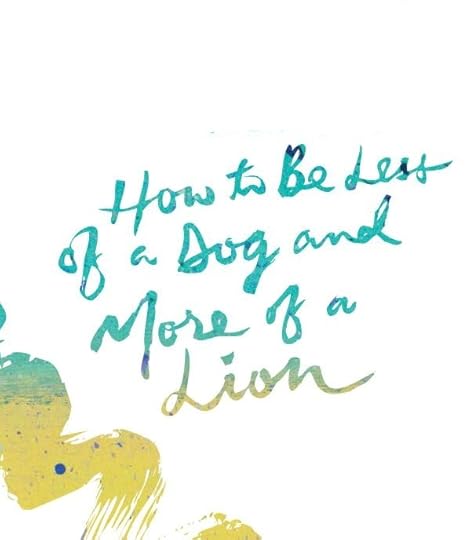
By Phakchok Rinpoche and Erric Solomon
Are you going to be a dog or a lion? And what that has to do with where to look for happiness? Ok so we've basically looked at the main problems with how we normally try to find happiness, looking in circumstances and things: 1) We aren't good at predicting, 2) The seeds of future dissatisfaction are planted within happy circumstances, 3) We don't know how to enjoy. Hopefully, that wasn't too exhausting, but we do need to properly diagnose our condition. Anyway, congratulations you made it to the payoff!
As promised this part will be a lot more fun. You are all going to be like lions, in the video below, Erric and Rinpoche explain where to look for happiness. All will be well, radically so.
Inspired by what's in the video or otherwise, leave your feedback below. We will respond, whether you like it or not ;)
October 3, 2018
Looking for Happiness: Do You Really Know How to Enjoy?
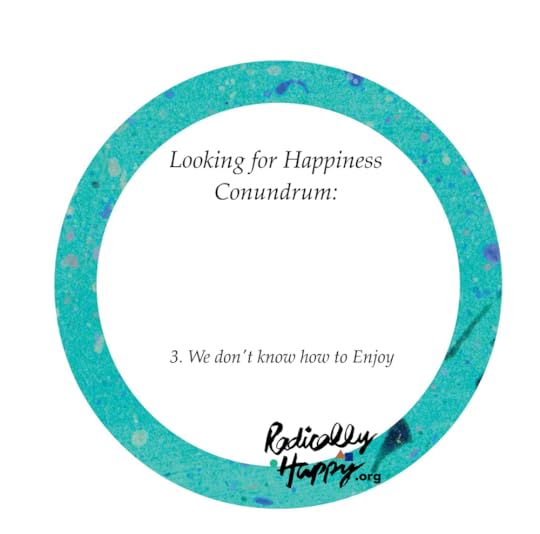
So, after everything else, we are terrible at happiness forecasting and most situations that make us feel happy contain the seed of future yuckos, now we have to consider if we even know how to really enjoy ourselves? Really? I bet some of you are starting to complain that for a site that talks about happiness, we seem to be on a bit of a downer lately. Yeah, sorry about that, but we need to understand what we are up against if we are gonna be able to radically transform it.It's a another conundrum. Well watch this video and let me know how you feel in the comments section below.
September 24, 2018
Looking for Happiness: Favorable Circumstances are the Seed for Future Dissatisfaction
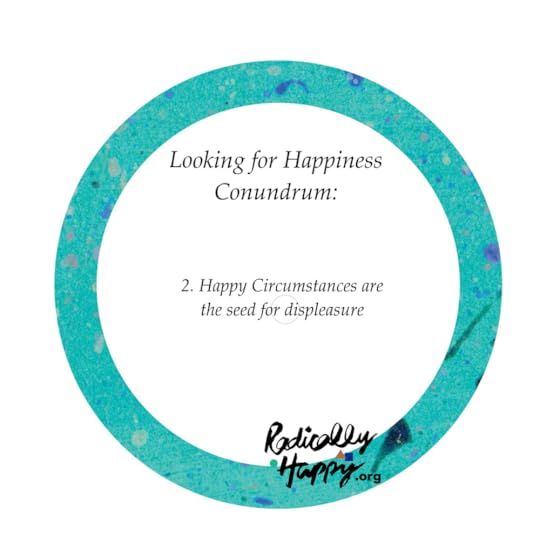
Okay, I know this sounds weird, and maybe even kind of depressing. But it's flaw #2 in the "Looking for Happiness Conundrum" that we discuss in our otherwise Radically Happy book. Trust me, it will all end up for the best. But first, we just need to consider 3 things about how the way we usually go for happiness isn't gonna work. So watch the video, and complain or praise in the comment section below...
September 17, 2018
Looking for Happiness: Can You Predict What Will Make You Happy?
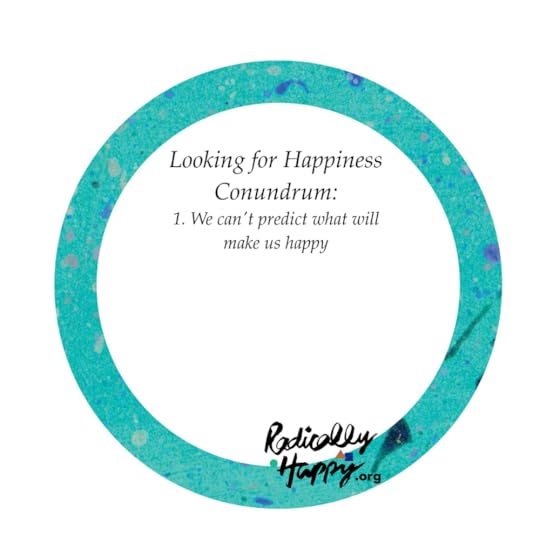
In our book we talk about the "Looking for Happiness Conundrum". It's really an exploration of the different ways we usually seek out happiness and why it just can't work. The first problem is that human beings are really bad at predicting what will bring them lasting happiness. So, let's take a few minutes and playfully explore if this is really true. I predict you will agree with me if you watch the video. But please feel free to offer your comments below...
August 6, 2018
Sharing Happiness and Joy: The magic of interconnected happiness
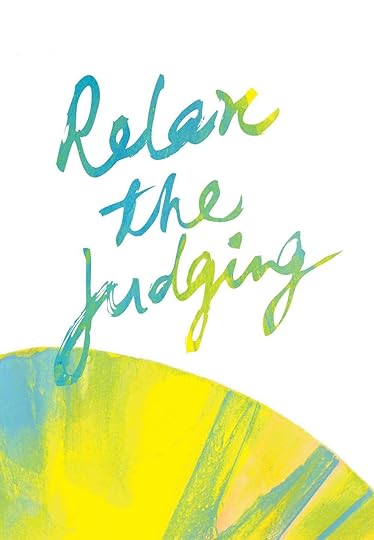
Scientific studies have come out in the last ten years that show we form strong opinions about people in milliseconds. These opinions are very difficult to change and sometimes wrong. We have all had the experience of not liking someone until we got to know them better. Yet we make lots of decisions based on this primal, habitual brain function. This kind of process of judgment is coloring our view, preventing us from experiencing the world authentically. But the good news is that we can learn to relax this habit of making quick judgments through cultivating loving-kindness and compassion during meditation, as well as learning to celebrate the good fortune of others.
I was asked to give meditation classes in a minimum-security prison in California. One of the guys in class who was most enthusiastic about the subject was also quite a character. For this story I’ll call him Bill.
Bill was a fisherman who found he could make a lot more money smuggling weed from Thailand than by fishing. When he started out, he was a peace-and-love guy, but as the smuggling became more and more successful he started becoming quite paranoid and reckless, and he also started carrying guns. Now, though, he felt that prison likely saved him from a much worse fate. Nevertheless, as you might imagine, a few pesky thoughts still gnawed at Bill.
When we did the Experiencing and Sharing Joy practice together with the group of inmates who were attending the class, Bill was all-in. That is, until we got to the sharing with enemies part. He really lost it. He got over-the-top upset, and we had to stop the practice. It turns out that while Bill was taking a six-year timeout, his former partner, who ratted on him, was sitting on the French Riviera with several million of Bill’s bills. “How can I invite him into my field of joy!” shouted Bill.
Many of those in the class were sharing cells, and they hung out a lot together and knew each other’s stories quite well. One of them asked Bill if he was happy when he had all that money. Bill shot back, “You know I wasn’t. I was walking around with a gun worried all the time that someone was out to get me.”
Another inmate dared to suggest that Bill’s partner took the money in order to be happy. He went on to point out that when Bill had the money it didn’t make him happy. The other guys piled on, teasing and laughing at Bill, “He took the money to be happy, yet he was looking in the wrong place for happiness.” Bill tried gamely to suggest that it’s better to have the money than not, but you could already see he was losing steam. Another guy yelled, “Just remember how bad you felt when you had all that money. Why are you still dwelling on that stuff, man?” It might be hard to understand how the brutality of prison humor helps anyone shake something like that off, but on that day I witnessed it.
It wasn’t that Bill just dropped it then and there completely. But he did start laughing a bit with all the teasing going on. He later said it was the first time in six years he could begin to start letting go of his anger and hurt. He kept trying to share joy with his former business partner who ratted him out. And he eventually found a way out of the psychological prison he had put himself in.
Excerpt from Radically Happy: A User's Guide to the Mind Copyright 2018 Shambhala Publications
How to do the "Sharing Happiness and Joy" exercise
• Begin by creating space.
• After a few minutes, recall a time when you were a child (or later if need be) when you felt truly carefree and happy. Remember everything about this time: where you were, the room you were in, or, if it was outside, the details of the setting. Recall any distinctive sights, sounds, or smells. But most of all remember how it felt to be so carefree and full of joy. Really get into it; make it as vivid as possible.
• Feel your heart open. Then consider that any tension in your body subsides and you allow yourself to fully reexperience this carefree joy from years ago.
• Imagine the joy is also manifesting as a soft light that surrounds you. Rest in the sensation of the soft light of delight for a time.
• Now imagine that the person you feel closest to is right in front of you. Share this feeling of carefree happiness with her. Invite her to share this feeling of joy that you experienced before and are re-experiencing again. Allow the soft light of happiness to wash over her, completely. As the delightful feeling of carefree joy opens her heart, all the tension and pain in her body is dissolved and she relaxes. Her face breaks into a sweet simple smile as she enjoys this carefree feeling. Rest together with her in this vivid state of joy, bathed in soft light, for a little while.
• Next, imagine a few people who are extremely close to you appearing in front of you. As before, share this feeling of happiness and wellbeing that you experienced before and are experiencing again right now. Watch as the soft light of happiness enters their body, and all the tension and pain is released. As they relax, a gentle grin alights on each of their faces. Rest together with your closest loved ones, all enjoying this joyful feeling. Imagine a gentle orb of light envelops you all.
• You can expand this field of joy even further. Imagine inviting a group of people you really like. Maybe they are colleagues at work or from your social network. Share the light of happiness as before. Invite them to experience the same joy you are experiencing. Let it dissolve all the tension and pain. And then rest with them.
• Now recall a person you saw on the street or the person you get a coffee from in the morning, or anyone you don’t know well, at all, or else feel neutral about. Invite as many neutral people as you can think of into the orb of light. Their bodies relax as any tension or pain is released, and they smile.
• After doing that for a time, try including people who annoy you. Invite them into your field of joy. Allow the gentle orb of light to wash over them and relieve them of their tension and pain. Watch as they relax and grin with delight. Laugh with them. Welcome them and share the incredible gift of carefree happiness. In this state, there is no annoyance, no judging, no problems of any kind—just the soft, gentle light of delight filled with all your friends and acquaintances and maybe even a few people who generally annoy you.
• After you become used to sharing with people who annoy you, try inviting into the circle people who have done you real harm, your enemies. Or it could be really bad people you learn about on the news. But no matter how bad they are, invite them in. Share as you did before. Allow the light of delight to heal them and grin together with all of them. Then rest in the soft light of carefree joy.
Sharing joy with enemies can be very challenging, and it takes practice. Don’t worry about doing it perfectly or beating yourself up if a bunch of turbulent emotions arise. Be gentle and patient with yourself. Eventually, you will be able to invite the entire world into your field of joy. And as you do so, you will relax the judging even more.
July 17, 2018
The Magic of Interconnected Happiness
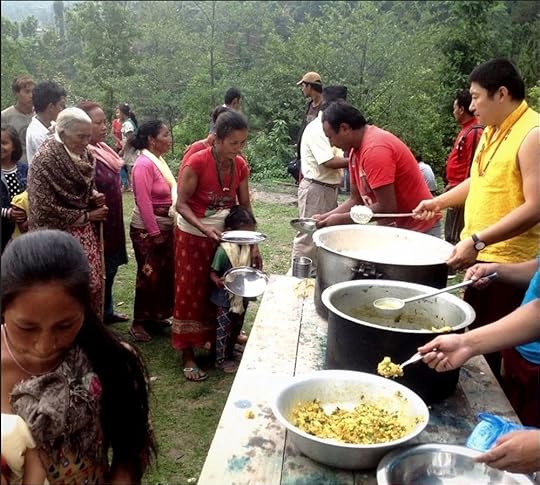
People often ask me what my secret was for being able to help so many people in such a short amount of time after the disastrous Nepal earthquake in 2015. It is true that before the government and the aid agencies stepped in, we were able to provide tarps and food in the villages that were severely hit. Because we are a small organization, we didn’t have to spend days discussing and planning the logistics. We just loaded the pickups with tarps and food we managed to gather and then drove off towards the east. But it wasn’t a sprint, and we were still providing tarps, food, blankets, and bringing medicine for quite a few months after the quake but in a more organized manner.
We had to work fast, and there was so much misery everywhere, and my family and all the monks and nuns from the monastery were also living in very bad conditions. So after a couple of weeks everyone started to burn out. It was so heartbreaking because no matter what we did, there was always so much more that needed to be done. It was impossible to keep up with the pace of meeting the need.
My wife and I got up every morning and did creating space and meditation. Of course we felt pressure to do something instead of sitting there. But unless we took care of ourselves we weren’t going to be much use. When you have space it is so much easier to be polite and kind even when it is a very stressful frustrating situation. You need to take some time to chill. We also made sure that everyone on the team could get a good meal when they weren’t out in the field.
But being kind and polite wasn’t enough; we had to be respectful of everyone. When doing charitable work, it is so easy to fall into the trap of subtly thinking you are superior. It is almost a natural reaction when you are handing out food or supplies to fall into this. But really I am not a hero; I am there just to serve. And serving means actually that I take the lower place than the one who receives the food or medicine. That is what it means to serve. But, it is still a little hard not to feel a little higher when I hand out the beans and rice.
Feeling superior isn’t really the problem; the real problem is when you feel superior you stop showing others proper respect. And when people have lost everything, they begin to have self-respect issues. When you lose your house, crops, and maybe a family member, it is hard not to feel devastated and it is pretty common that survivors have guilt as if it is somehow their own fault. So when you give respect to someone suffering like that, that gift is actually at least as meaningful as the food and medicine you are handing out.
When the truck with rice, lentils, tarps and medicine would arrive in the village, instead of standing on top of the truck and handing the goods to the survivors, we would jump out of the truck, and hand out supplies from the ground. I didn’t even want to be physically looking down on people while helping them. It may seem like a small thing to worry about in the midst of so much suffering, but small things can mean so much.
All told we helped about 100,000 people, but that’s just a number. To me what counted most are the innumerable moments when the giving was soaked with heartfelt compassion while not caring whether the person receiving it gave us thanks or not. For in that moment our hearts were connected and a pure magic of genuine interconnected happiness manifested!
June 26, 2018
A Sneak Peek at the Book: An Introduction
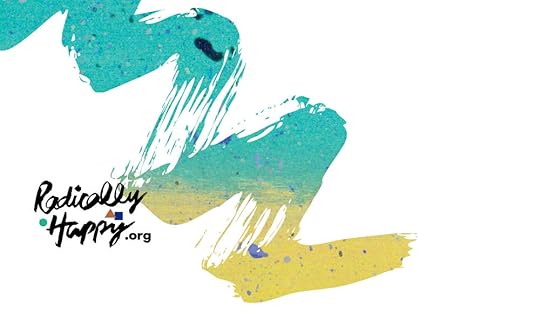
By Phakchok Rinpoche and Erric Solomon
Why did we write a book on happiness? Here is a sneak peek at the introduction to Radically Happy: A Users Guide to the Mind:
This book is about happiness.
Okay, we probably should stop right now, because we can hear what you’re thinking. And yes, we know: Who needs another book on happiness? And on top of that, who needs another book on happiness from a couple of Buddhists? If the goal of Buddhism is to become completely enlightened, why do you need a book about a trivial, fleeting mood like happiness?
Well, we think we could all use a bit more happiness. And this book offers something different: a real path to happiness. We don’t explore just one single solitary thing called happiness—as if it were a bronze statue in the town square—but the different kinds and the different dimensions of happiness, because happiness is a beautiful and many-splendored thing.
We are Buddhists, and it’s true that Buddhism speaks mostly about enlightenment. But without a solid foundation of contentment, basic sanity, and a decent self-image, you can’t flourish in life—either as a spiritual practitioner or as a practitioner of daily life. Not everyone wants to become a Buddhist, but doesn’t everyone want to be able to flourish and enjoy what life has to offer? We all want to be able to cope, without losing our sh*t when things don’t work out. And that last point is the heart of what radical happiness really is. It’s a subtle sense of well-being we can always access, especially when things are not so great (as in, when they really suck).
How can we experience this kind of happiness? By making a slight but radical shift in the way we live our lives. The root of happiness is found not in specific circumstances; it’s found in the way we relate to all of our experiences—including the chaos and confusion we might find ourselves in the middle of. So learning how you can shift, moment to moment, the way you relate to the world and to all the crazy stuff that runs through your mind—that is what this book is about. We’ll also encourage you to have a few good laughs along the way, as you learn to make the shift.
What we offer here is a user’s guide for your mind. (The mind is the most important device you have in your life, and nobody helps you figure out how to use it!) We will guide you through thought experiments, contemplation exercises, and meditation practices to help you get the most from your mind. This book also comes from a unique perspective: it is the result of a meeting of minds between a Silicon Valley entrepreneur and a Tibetan Buddhist guru. East meets West, ancient wisdom meets modern science, and what you end up with is a truly original perspective on how to actualize life’s full potential.
Radical happiness is not theoretical. It’s something we’ve tested on ourselves, our family, friends, and the thousands of other people who have come to our workshops, retreats, and seminars. Like all good app developers, we did a lot of beta testing, made some big mistakes, and then worked on getting the bugs out. And that helped us figure out how to make the process of mastering our mind something everyone can do—and enjoy.



